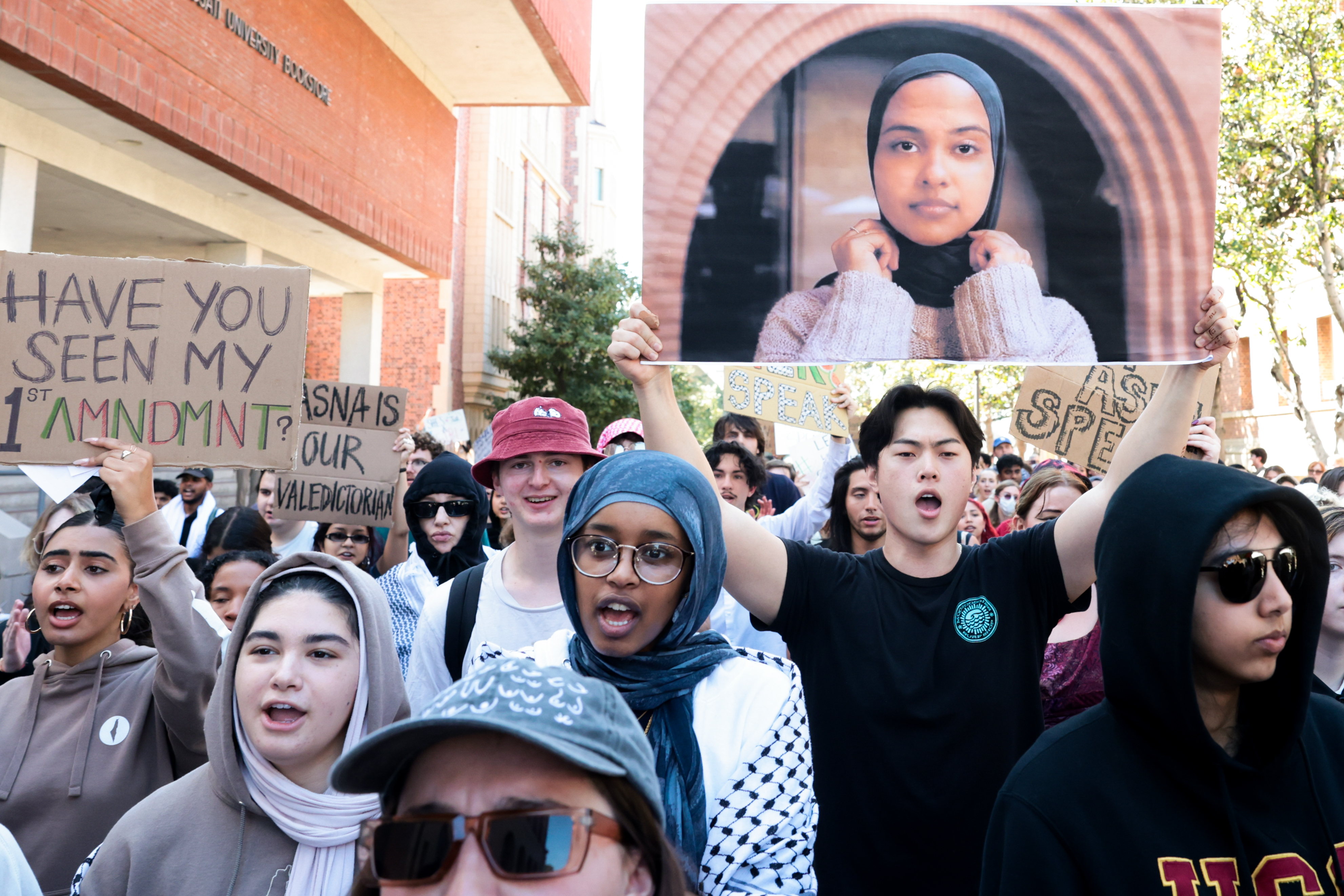While Americans are helping countries around the world dispense the yoke of dictatorship, our next generation of leaders is demonstrating little knowledge about democracy.
In California, where the state dropout rate exceeds 25 percent, the problem is particularly severe.
The latest findings from the National Assessment of Educational Progress (NAEP) finds that only 24 percent of high school seniors understand the U.S. political system, down from 27 percent four years ago. Eighth graders and fourth graders had similar unawareness.
Some may be inclined to dismiss these data as puffery--after all, what are kids supposed to know, anyway?
But that's the problem.
Schools are intended as places for giving our children the tools they will need for adulthood. Along with math, science, reading and other elements of educational bedrock, it's important for students to understand how the political system works and how they can be part of it. Here is where they are supposed to learn about such concepts as rights, obligations, fairness, tolerance, consensus-building, compromise and the range of concepts that underscore citizenship.
Don't think they get this stuff in the "real world" after they've left school. Studies show that the more kids understand the political process, the more they will analyze, evaluate and participate in that process as adults.
Conversely, uninformed kids are much more likely to drop out of the political world, leaving the management of such issues to those who know and care. If the NAEP data are anywhere close to right, three-fourths of our youth are on their way to doing just that.
Sadly, only a few weeks ago, Congress eliminated a couple of hundred million dollars from civic education programs administered by nonprofits throughout the country as part of the effort to trim $38 billion from the budget deficit.
U.S. & World
As a result, the few programs that had been dedicated to providing civic education will be hard-pressed to continue in the coming years, leaving kids even less prepared to assume roles as active citizens in adulthood.
Watching the revolutions throughout the Middle East and much of Africa shows us that you don't get democracy by taking a pill or waving a magic wand. You get there and stay there by learning about its tenets and practicing it day in and day out in our daily lives and interaction with others.
"Penny wise, pound foolish" may be thought of traditionally as a critique of inadequate economic investment, but the term lends itself well to our "commitment" to civic education.
Maybe it's time to re-think some of our priorities.



